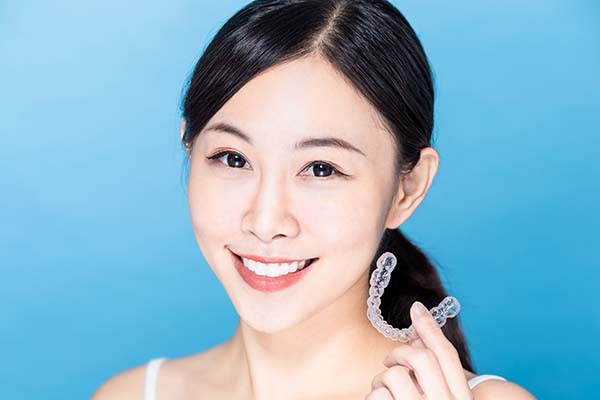 Going to the orthodontist should not have to be a scary experience. Orthodontic treatment can change your smile and give you the appearance you want. It is not easy living with crooked teeth, but there are different methods for correcting this problem. Orthodontists have the knowledge and training to straighten your teeth and potentially repair even the most challenging conditions. It is helpful to learn more about what is available for you in restoring your smile and health.
Going to the orthodontist should not have to be a scary experience. Orthodontic treatment can change your smile and give you the appearance you want. It is not easy living with crooked teeth, but there are different methods for correcting this problem. Orthodontists have the knowledge and training to straighten your teeth and potentially repair even the most challenging conditions. It is helpful to learn more about what is available for you in restoring your smile and health.
The trouble with crooked teeth
There are many reasons why a person would want to see an orthodontist about fixing crooked teeth. This issue has both oral health and cosmetic consequences. In addition, many people seek help for their crooked teeth to boost their self-confidence. A person with misaligned teeth may even want to hide their smile or avoid social situations.
Crooked teeth are also difficult to brush and floss effectively. As a result, tooth decay and gum disease can occur. The person may experience tooth pain. Tooth loss, and even bone loss, is also possible if the decay and infections are severe enough.
Metal braces
People have worn traditional metal braces for decades to correct alignment and bite problems. Metal braces consist of brackets, which go on and around the teeth with dental cement and elastics. Wires run through the brackets. The braces put pressure on the teeth, gradually moving them into the right places in the mouth. This treatment generally lasts two to three years. The braces are permanent until the orthodontist removes them.
Clear braces
Traditional braces can be effective in straightening teeth. One drawback is that this method is readily noticeable and stands out. In addition, some patients may feel self-conscious about having metal in their mouths. Ceramic braces are another option. These brackets will match the color of the teeth and are much more difficult to see. The treatment works the same as metal braces.
Aligners
Another more cosmetically appealing treatment is for the orthodontist to use clear aligners. These plastic mouthguards fit over the teeth and are virtually invisible. The patient does not have to wear them constantly, though having them in for 21 to 22 hours a day is most effective. The treatment length is usually shorter than with braces too. The patient will get a new set of aligners every few weeks as the teeth move.
Veneers and crowns
When a person thinks of these cosmetic devices, they may not think of the orthodontist. Often, these treatments fix chipped or broken teeth. However, because veneers and crowns can change the shape and form of a tooth, they may be a viable choice for straightening crooked teeth. These are typically made of ceramic or porcelain. Veneers attach to the front of the tooth, while crowns fit entirely over the affected tooth.
Let your orthodontist repair your crooked teeth
Regardless of your age, it is never too late to straighten your teeth. If you are tired of looking at your crooked teeth, there are solutions. Braces, aligners, veneers, and crowns can all work well to give you the smile you want. Visit your orthodontist today and discuss which option makes the most sense.
Request an appointment or call Valley Ranch Orthodontics at 972-200-1016 for an appointment in our Irving office.
Related Posts
Early interceptive therapy, also known as phase 1 orthodontics, is performed by a kids orthodontics and deals with the application of growth appliances, expanders, or partial braces, pending the complete eruption of the patient’s adult teeth. Phase one treatment is usually recommended for children when they are between 7 and 11 years old. The treatment…
Children who suffer from misaligned teeth and visit an orthodontist to help correct the problem may be fitted with dental headgear. There can be several reasons why this may be recommended, such as for the correction of protruding front teeth or irregular jaw growth. Parents who are told a child will require headgear may wonder…
The American Association of Orthodontists recommends bringing your child to an orthodontist for a bite evaluation before they reach seven. Early detection of issues with the alignment of a child’s teeth or jaw makes it easier to correct them. The child’s jaw and facial structures are still developing at this point, making it easier to…


